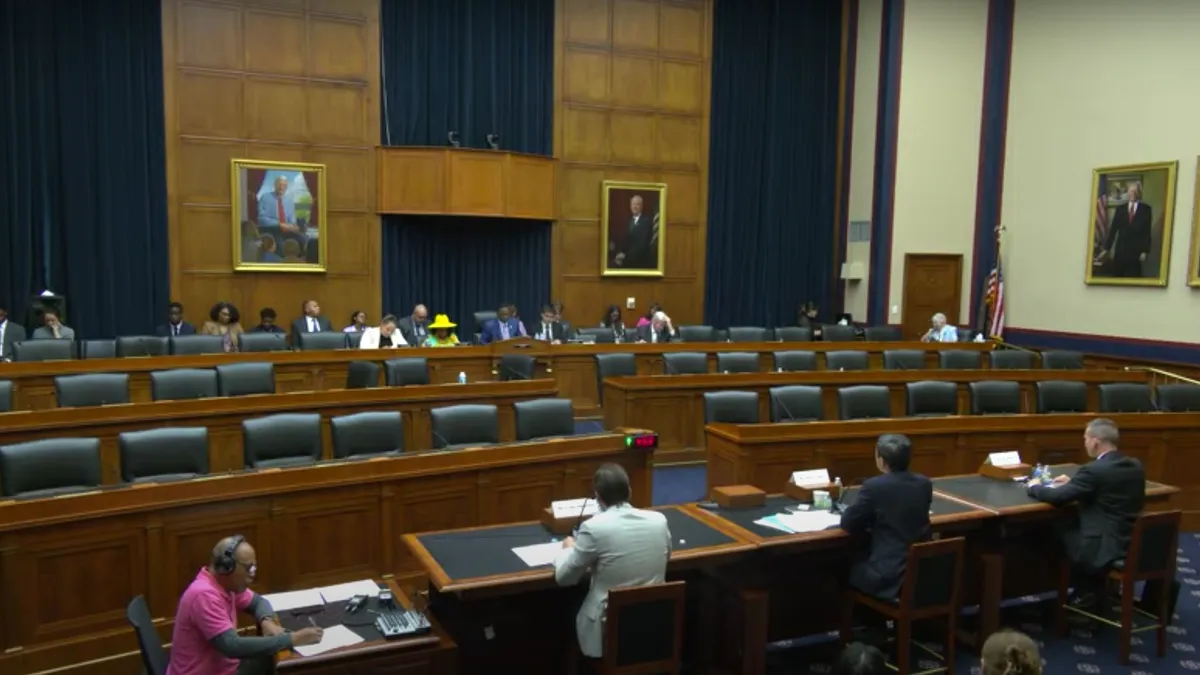Dive Brief:
- House Republicans on Thursday accused the U.S. Department of Education, and the higher ed sector broadly, of failing to properly address foreign influence on college campuses.
- During a hearing of the Subcommittee on Higher Education and Workforce Development, GOP lawmakers questioned policy experts on how to handle and regulate foreign money — especially from China — in U.S. colleges.
- Democrats during the hearing cautioned against fueling anti-Asian sentiments in the regulatory process and advocated for more guidance from the Education Department to help institutions comply with rules for reporting foreign donations and contracts.
Dive Insight:
Section 117 of the Higher Education Act requires institutions to report foreign gifts and contracts worth $250,000 or more in a year. Under former President Donald Trump, the Education Department began to crack down on enforcement and opened investigations into higher ed's involvement with foreign entities, primarily focusing on China. Many of those investigations remain open.
During Thursday's hearing, Utah Rep. Burgess Owens, chair of the Republican-controlled subcommittee, criticized the Education Department for not opening further investigations since President Joe Biden took office, calling the agency's current leadership feckless.
Owens also took aim at the Office of Federal Student Aid, which handles enforcement of Section 117, but said it was ill-suited to do so. FSA is already struggling to fulfill its responsibilities, as the agency works to unveil an improved version of the FAFSA — the Free Application for Federal Student Aid.
Much of the hearing focused on China, one of 12 countries the U.S. Department of State labels as being of particular concern.
"China is certainly not the only country with its sights set on American academia, but it is by far the most prolific offender," Craig Singleton, senior fellow at the Foundation for Defense of Democracies, said during the hearing. FDD is a right-leaning foreign policy think tank.
"China's whole-of-society strategy to leverage American academic openness aligns with its broader, stated objective of becoming a global superpower," he said.
Singleton, who also serves as the deputy director for the FDD's China program, advocated for a lower gift threshold on Section 117 reporting requirements, a ban on the Chinese government-run Confucius Institutes, and the creation of a federal office dedicated to enforcing anti-foreign influence laws in higher ed.
He lauded leaders in some states, especially those in Florida, as examples of how to address foreign money
In May, Republican Gov. Ron DeSantis signed a law requiring Florida’s public colleges to get permission from their governing board before working with or accepting grants or gifts from certain countries, including China.
And beginning this month, all Louisiana colleges — public and private — must report foreign gifts and contracts worth $50,000 or more.
During Thursday’s hearing, Democratic representatives warned against an overzealous approach to punishing colleges.
Florida Rep. Frederica Wilson, ranking member on the subcommittee, agreed that colleges should be transparent about their ties to foreign entities but expressed concern they didn't have a clear understanding of what was expected.
"I fear my Republican colleagues have over-emphasized enforcement rather than providing guidance regarding Section 117," Wilson said. "The lack of clear guidance hinders institutions’ ability to comply with the law."
She also emphasized that compliance and accountability can be sought without singling out or scapegoating Asian Americans.
"Congress and this administration have raised valid concerns regarding the Chinese Communist Party and their agenda against the United States; these worries should not be twisted into an excuse to push anti-Asian rhetoric and we must safeguard our interests without adopting an extreme isolationist position," Wilson said.
John Yang, president and executive director of the legal advocacy group Asian Americans Advancing Justice, acknowledged ongoing economic espionage efforts by the Chinese Communist Party.
But he stressed that Asian Americans and Asian immigrants should not be painted with a broad brush.
"Biased public statements by public officials combined with data and individual cases indicating that there have been unjust arrests and prosecutions of Asian Americans have raised red flags for us that federal agencies are engaged in biased investigations and policing," Yang said.














